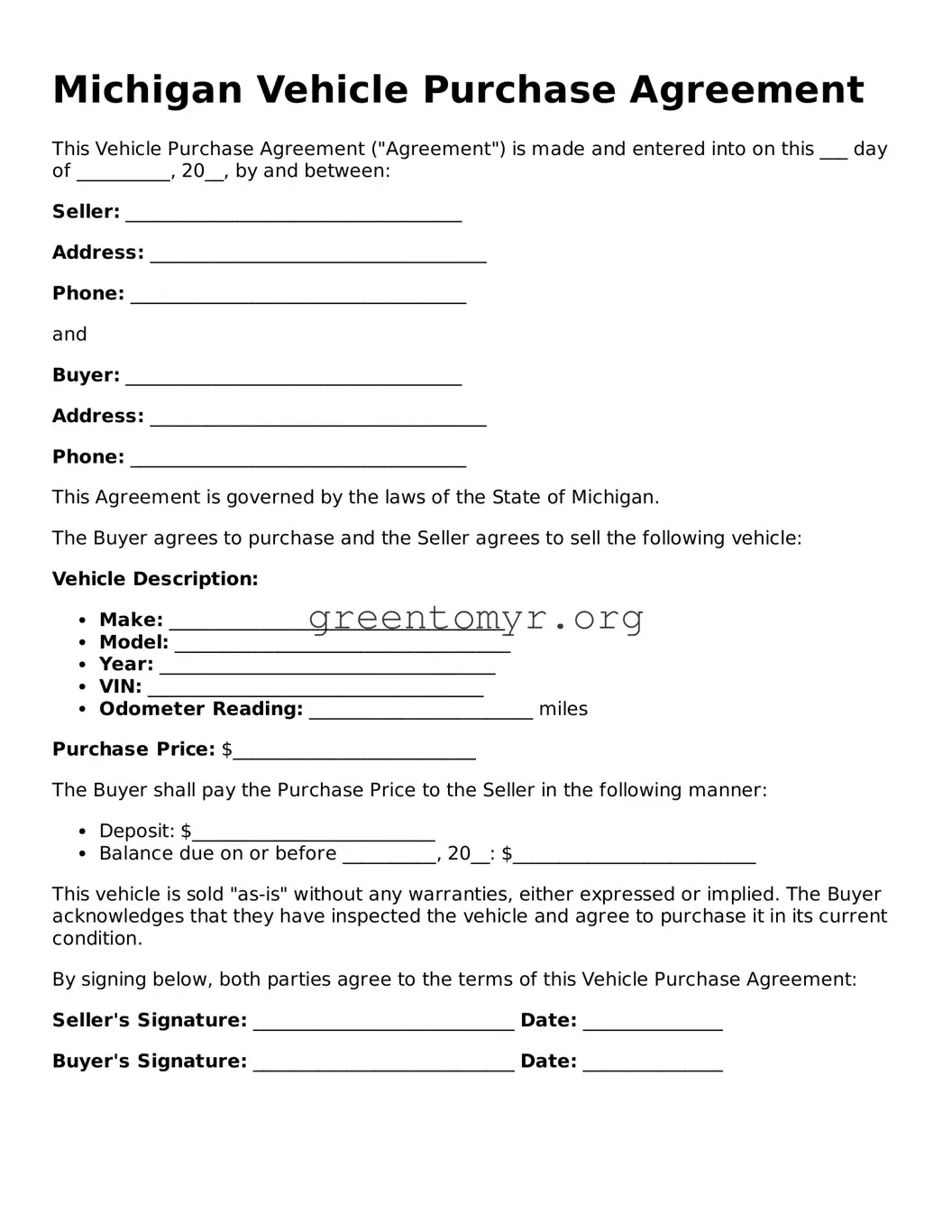Filling out the Michigan Vehicle Purchase Agreement form is a crucial step in the vehicle buying process. However, many people overlook specific details or make common errors that can lead to complications down the line. Understanding these mistakes can help ensure a smoother transaction.
One frequent error occurs when buyers fail to include the correct vehicle identification number (VIN). The VIN is a unique 17-character code that identifies individual vehicles. Omitting it or inputting an incorrect number can create issues with registration and title transfer, leading to delays and potential legal problems.
Buyers often overlook thoroughly reviewing the purchase price. In some cases, the total amount doesn't accurately reflect negotiations that occurred. It’s critical for all parties to agree on the number before finalizing the document. If discrepancies arise later, they can lead to disputes that might require legal attention.
Another mistake is neglecting to fill out all required fields. Each section of the form serves a purpose, and missing details, such as the seller’s information or sale date, can render the agreement unenforceable. It is essential to ensure that every relevant line is completed before signing.
Improper documentation of any trade-in vehicle can also cause confusion. Buyers should clearly describe any vehicle being traded in, including its make, model, year, and condition. Without accurate information, misunderstandings can occur, potentially affecting the final sale price.
Many buyers also fail to understand the financing options. If financing is involved, the agreement should clearly state whether payments will be made through a financial institution or directly to the seller. Not outlining these details can cause issues with loan servicing and potential defaults.
When it comes to vehicle delivery, some individuals do not specify the terms. The agreement should clearly outline when and how the vehicle will be delivered. Vague language can lead to confusion or disagreements over timelines, impacting the buyer's expectations.
Buyers frequently skip reading the “As Is” clause, which indicates that the seller is not responsible for any defects after the sale. If issues arise later, and the buyer hasn't understood this section, they might find themselves unprotected. Awareness of this clause is essential for managing future risks.
Another common oversight involves signatures. Both parties must authenticate the agreement by signing it; otherwise, the document may lack enforceability. Without appropriate signatures, either party may dispute the agreement, leading to potential legal entanglements.
Buyers sometimes forget about the importance of retaining a copy of the completed document. Keeping a copy provides essential evidence of the agreement, helping to resolve future disputes. It is always advisable to store relevant paperwork securely.
Lastly, individuals may neglect to confirm the seller's identity and authority to sell the vehicle. Failing to verify that the seller is the legal owner can lead to significant problems down the line, including potential fraud. Always perform due diligence to ensure the transaction is legitimate.
